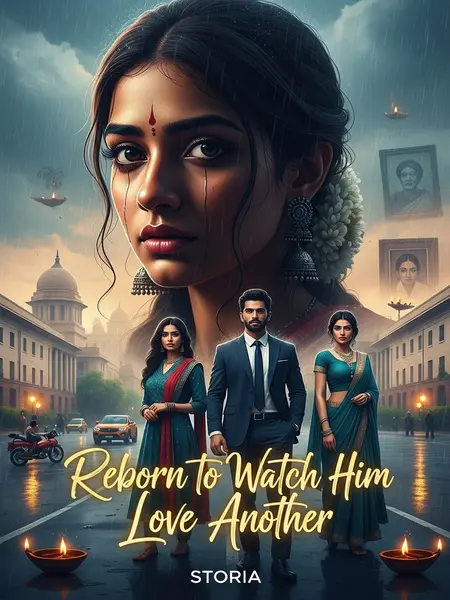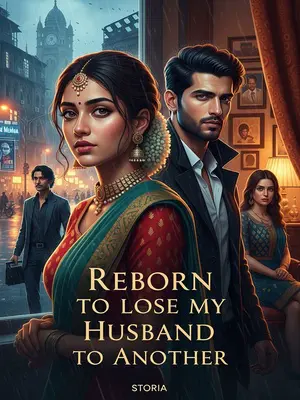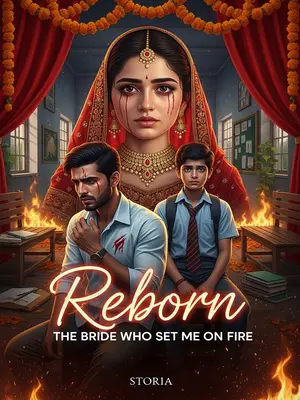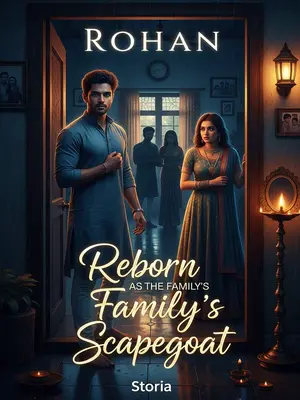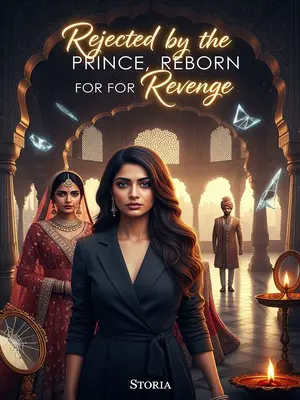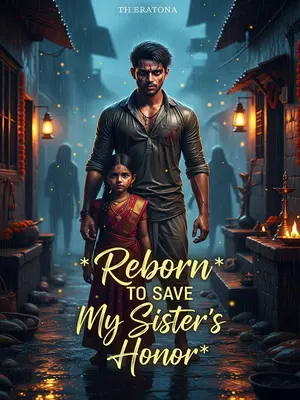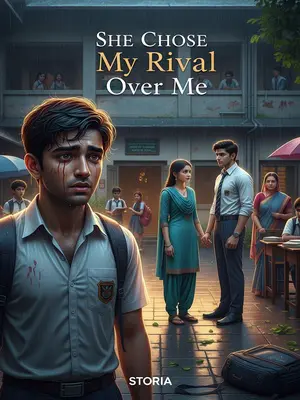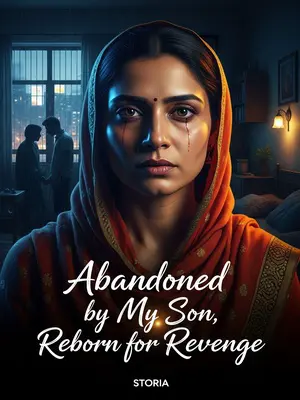Chapter 2: The Echo of Anklets
In my previous life, Rohan and I were a well-known, devoted couple.
We were the pair everyone in Hazratganj talked about—the Sharma-Saxena household, always hosting, always laughing. Even panditji at the temple would ask after us. Sometimes, I still feel the echo of those days when neighbours came for Holi colours, the scent of abir lingering in the air, and Diwali sweets, and Rohan would insist on making gujiya himself just to see me smile. Children ran around with sticky hands, water balloons bursting in the courtyard, and the air buzzed with laughter.
Every morning, he would help me drape my saree pleats just right.
No matter how many times I fumbled, his fingers would smooth out the fabric with such care—like he was handling something delicate and precious. “Arrey, yeh kaam toh sirf main hi kar sakta hoon,” he’d tease, grinning as he tucked the pleats perfectly at my waist. My cheeks would flush, but I’d let him, because in that moment, it felt like we were the only two people in the world.
Whenever he came home, he would bring me a sprig of gulmohar blossoms.
He’d wave them at me from the gate, calling out, “Dekho, tumhare liye kya laya hoon!” The gulmohar petals would stain my palm red, their scent mingling with the spices from the evening tadka. To outsiders it was just a flower, but to me, it was a silent promise—one he kept every day.
When the weather turned cold, he would warm my feet with his hands under the thick rajai.
Those chilly Lucknow nights, with the fog pressing against the windows, I’d always find his hands searching for my icy toes. “Hamesha thandi rehti ho, tum,” he’d grumble, but never stopped. Sometimes, he’d trace lazy patterns on my ankles, making me giggle and pull the quilt tighter.
By the time he became a Joint Secretary at forty, there was still only me in our big family home in Lucknow.
Our home echoed with the sound of my anklets and his measured footsteps. Even as his responsibilities grew, he never let go of our small rituals—tea at dawn, Sunday crossword puzzles, those long drives to Bara Imambara. The children in the neighbourhood called him ‘Rohan uncle’, but to me, he was always just mine.
Even when the Chief Minister wanted to introduce him to influential families’ daughters, he refused them all.
I remember the whispered offers, the gifts that arrived quietly during Diwali, the subtle hints from political families. Rohan would only smile, shake his head, and say, “I am already spoken for.” In that, he never faltered. The world could tempt him, but his loyalty was unshakeable.
Our love and trust never wavered—ten years felt like a single day.
Time melted away, festivals blurred together. Ten years—ten monsoons, ten winters—felt like one beautiful, continuous evening, where the diya in our hearts never went out. Even my mother used to say, “Tum dono jaise toh filmon mein bhi nahi milte.”
So, in this life…
When others came to propose, no matter how wealthy or outstanding, I refused them all.
The matchmakers would come with their files and family trees, mothers with boxes of sweets, but I’d always say the same: “Nahi, shukriya. My heart is not free.” Sometimes, I could see the confusion on their faces—why would a girl from a respected family wait for a boy with nothing but ambition?
I wanted to wait for Rohan.
I’d sit by the jharokha at dusk, watching the neighbourhood kids playing, and imagine him walking up the lane, all tired from the library, ready to share his latest story. Even if everyone said I was foolish, my heart refused to move on.
I told my father that I already had someone in my heart. By this time next year, after he cleared the civil services, he would come to propose.
My father scolded me for being foolish—why turn down the rich and powerful for a poor boy from a humble background?
He’d slam the steel thali down on the table, muttering under his breath, “Yeh ladki bhi na, sar pe chadh gayi hai.” I twisted the end of my dupatta, eyes lowered to hide the tears stinging at the corners. Still, I held my ground.
I said, "One day he will crack the IAS—his prospects are limitless."
Even if Rohan was talented, could he really compete with the old money and connections of an established family?
The aunties would whisper during puja, “Poor thing, waiting for a dream.” Even my cousins would smirk behind my back. Still, I kept faith—somewhere, I felt, the universe owed us another chance.
Before my mother died, she made my father swear to treat me well, or else she would never forgive him in her next life.
I remember Ma’s last words, her frail hands clutching Papa’s: “Hamari bitiya ko kabhi majboor mat karna, Varunji. Varna agli zindagi mein bhi tumhe maaf nahi karoongi.” Those words became an unspoken shield around me, even as the world tried to force my hand.
So, though angry, my father could not bear to force me.
He’d grumble and bang plates at dinner, but in the end, he only sighed and ruffled my hair. Some nights, I’d hear him praying for my happiness, his voice breaking quietly in the pooja room.
Thus, I refused all suitors.
Spring passed and autumn came. The moonlight remained unchanged. Year after year, I waited.
The neem tree outside my window shed its leaves, and still I waited. Festivals came and went—kandeels at Diwali, rangoli at Holi—but my heart stayed stubborn. My cousins married, families moved away, but I kept my vigil. Sometimes, I’d whisper my hopes to the full moon, as if Chanda mama could carry my prayers to Rohan.
But as the gulmohar petals drifted down, I wondered—had Rohan truly let go, or was fate still playing its cruel game?
